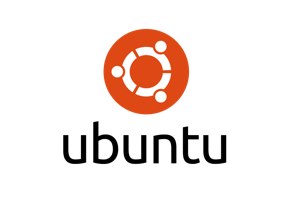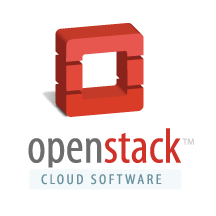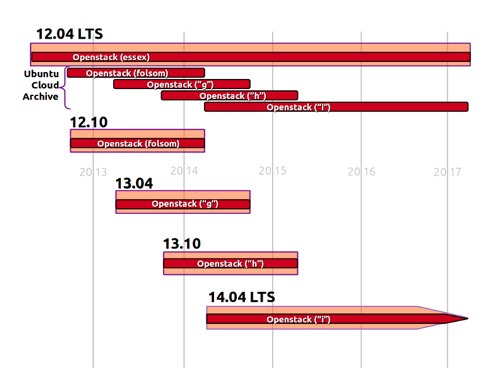Rarely does a day go by in the Linux community without the release of some new distribution update or other, but it seems safe to say that few make as big a splash as Ubuntu releases do.
Today, of course, is the official release day for Ubuntu 12.10 “Quantal Quetzal,” and the buzz surrounding the software’s arrival is definitely living up to that standard.
 There are numerous exciting new features in this new Ubuntu release on both the desktop and the server, but one on the server side stands out as being particularly notable for enterprise users. It’s the recent addition of Canonical’s Ubuntu Cloud Archive, and it promises to make life much better for the countless companies out there using both OpenStack and Ubuntu Server.
There are numerous exciting new features in this new Ubuntu release on both the desktop and the server, but one on the server side stands out as being particularly notable for enterprise users. It’s the recent addition of Canonical’s Ubuntu Cloud Archive, and it promises to make life much better for the countless companies out there using both OpenStack and Ubuntu Server.
Linux.com had a chance to speak earlier this week with Mark Baker, Canonical’s product manager for Ubuntu Server, as well as Steve George, its vice president of communications and products, about this promising new capability.
Ubuntu Cloud Archive
Ubuntu Server 12.10 is actually the fifth Ubuntu release to feature OpenStack, and this time it includes the Folsom release of OpenStack along with two major new components: Cinder, for block storage, and Quantum, a virtual networking API.
 With this release, Ubuntu Server is also the first operating system to support Intel’s new Open Attestation (OAT) in an OpenStack environment, Canonical says. Meanwhile, Juju, the software’s service orchestration tool, is now natively supported on OpenStack clouds running on Ubuntu, so IT departments can use it on many more public clouds than they could before. Ubuntu 12.10 delivers a first look at a new graphical interface for Juju as well.
With this release, Ubuntu Server is also the first operating system to support Intel’s new Open Attestation (OAT) in an OpenStack environment, Canonical says. Meanwhile, Juju, the software’s service orchestration tool, is now natively supported on OpenStack clouds running on Ubuntu, so IT departments can use it on many more public clouds than they could before. Ubuntu 12.10 delivers a first look at a new graphical interface for Juju as well.
Perhaps best of all, however, is that enterprises with infrastructure built on Long Term Support (LTS) versions of Ubuntu can now remain on that software but still deploy compatible versions of the latest OpenStack releases that arrive in interim Ubuntu updates, such as Ubuntu 12.10’s Folsom. That’s because of Canonical’s Ubuntu Cloud Archive, a growing repository of backported versions of OpenStack that gives enterprise Ubuntu users access the latest open cloud software, even if they choose to stick with a fully supported and certified LTS platform.
‘The Heart of All This Innovation’
So, “people can run Essex on Ubuntu 12.04, but if they want to be more current with the latest technology, they can do that and pull down Folsom or even release candidates of future versions,” Baker explained. “A lot of enterprises are testing and evaluating OpenStack, so to be able to pull down the latest stuff or see what’s coming down the pike is very interesting for them.”
Indeed, OpenStack is “a bit like Apache in the early days,” George added. “It’s the heart of where all this exciting innovation is happening.”
Many enterprise users, however, have hardware running Ubuntu 12.04 LTS and are very happy with it, so they don’t want to have to upgrade, he pointed out. “This gets around that,” George said. “You can have a stable Ubuntu and still get the latest and greatest release of OpenStack.”
LTS versions such as Ubuntu 12.04, which was released in April, are generally about stability and providing a long-term platform enterprises can depend on, George concluded. “With 12.10, however, we’re looking at where we’re going in future,” he said, “and OpenStack is a big part of that.”


